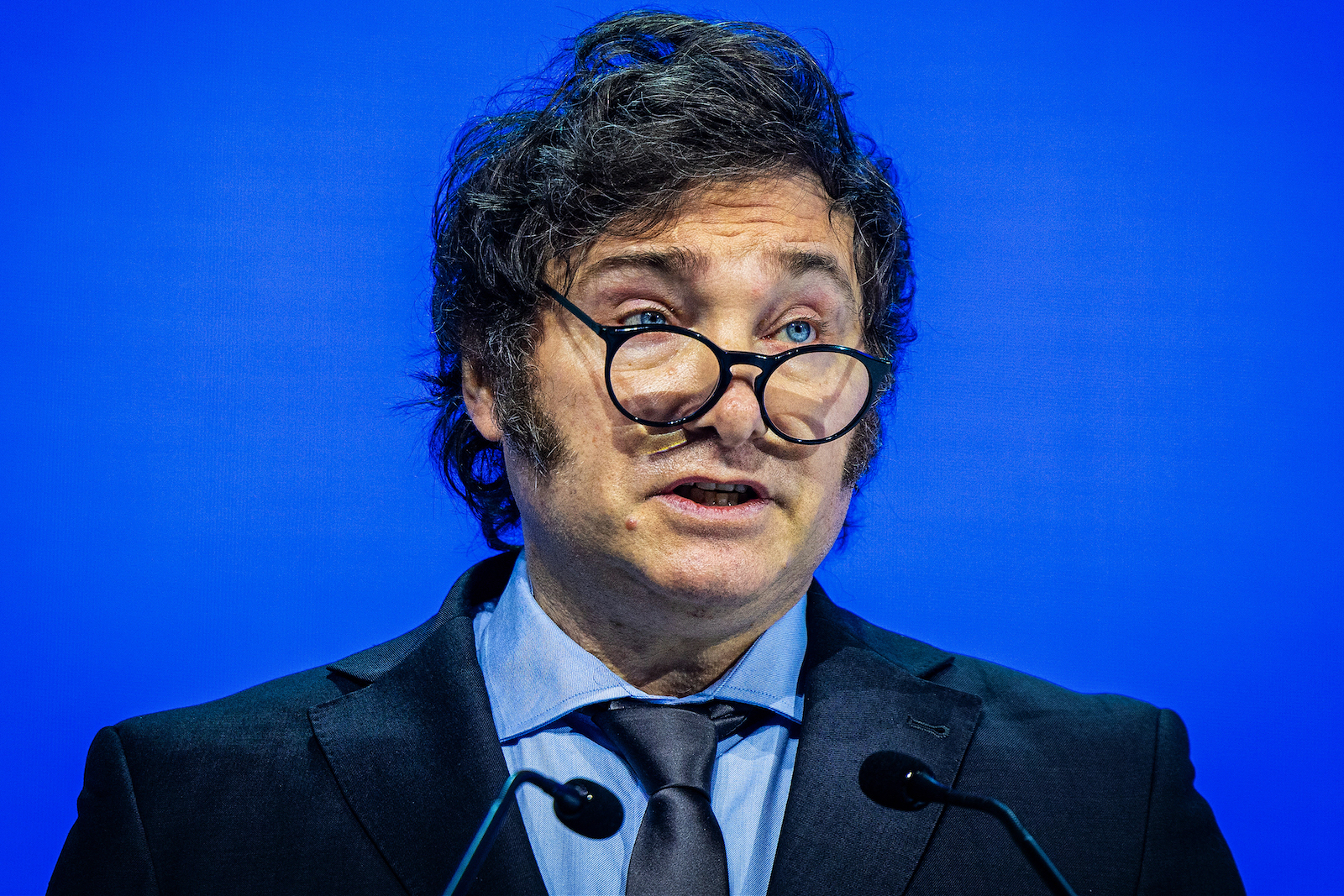
Javier Milei is the World’s Most Misunderstood Politico
If you ever wanted to know what a “punk economist” looks like, look no further than Argentina’s new president, Javier Milei.
A stargazing academic, studious (obsessive, even) about the laws of human action, Milei is also a leather-clad idealist with a devil-may-care scorn for established norms. His carefully cultivated brand lends him a mystique that charms both sides of the political spectrum.
His divisive charisma made an international debut two weeks ago at the World Economic Forum, where he hauled libertarianism out of the fringe, throwing incendiary rhetoric in the faces of the global business elite.
“The West is in danger,” he said. “Sectors of the political and economical establishment are undermining the principles of liberty, opening the doors to socialism,” a doctrine he later disparaged as “impoverishing” and equated with feminism, climate activism, fascism, and essentially every ideology other than his own.
What’s surprising is how this message was received. You’d think the globalist audience would have been outraged and victimized by an outsider slinging bold truths “in the enemy’s lair,” as it were. Instead, it seems Milei’s speech struck a chord with the WEF elite as if they relished being set straight by this upstart firebrand.
A cynic might not be surprised. They could argue that behind Milei’s personal eccentricities is a run-of-the-mill neoliberal who just gave the Davos crowd a slightly more impassioned presentation of the views they already hold. Milei’s domestic opponents and foreign alarmists have long compared his hyper-capitalist politics to those espoused by some Silicon Valley giants, who embrace market economics but disregard liberal values. This vision, that commentators have dubbed the Neo-Reactionary Movement, has some resonance with Milei’s speech: an unapologetic techno-optimism that dismisses concerns for nature, an obsession for economic efficiency over “good intentions” or “social justice,” and praising entrepreneurs as nearly cult heroes, to the detriment of egalitarian or democratic sensibilities.
But in his final remarks, Milei courts the managerial class that the Neo-Reactionary types usually decry: “You [Davos attendants], are the heroes,” he said.
Milei doesn’t see himself as an enemy of the system; he sees himself as its savior. He doesn’t conceive of the global capitalist class as usurpers or obstructionists, but as misguided and unjustly burdened with guilt. In sum, he thinks the problem with the current state of globalization is not that liberalism has been taken too far, but that liberalism is being abandoned.
No wonder the Davos crowd isn’t threatened. Milei comes, not to demolish the global order, but to right it, and that’s made clear by his broader agenda: his assertive “moral” foreign policy and embrace of liberal humanism, his rejection of populist authoritarians, the mainstream financiers and technocrats who make up his cabinet and fuel his domestic reforms.
The punk economist eludes classification. He doesn’t fit into familiar First World heuristics. At the same time, however, he’s recognizable to both sides of the debate — to those who think the world is on the right track and to those who see the cracks forming. That’s how Milei is able to reach out to both Trump and Macron, both Eurosceptics and Ukraine hawks.
His heterodox mélange of ideological positions and pragmatic commitments is designed to be underestimated, taken as nothing but a collection of quirks and amateurisms. His apparent bipolarity, mixing math-y jargon with fiery calls to action, changing from incandescent fury to calm solemnity, is a careful dance around the extremes, keeping close to the center and flying over those polarized subjects he deems outdated or distracting. Framing some issues as existential and non-negotiable while presenting others as mere common sense, he’s creating a new political language, which renders other paradigms unable to pin him down.
Ultimately, what Milei represents is a challenge to the idea that “history has ended” and that liberals are forever resigned to upholding a stale policy equilibrium reached in the ‘90s. His words in Davos are illuminating: Liberalism is not inevitable. And it’s not the safe, boring option either. The future belongs to a revitalized liberalism that opposes illiberal forces and abandons past orthodoxy to address new concerns.
Just like punk emerged in an age where rock had lost its underground edge, harnessing the orphaned rebels in ways that were significantly more raw, even plebeian, Milei is making liberalism cool again, a move that appears simultaneously blunt and sharp.
Some think that commercialization killed punk. Others say becoming consumer-friendly is what allowed punk to reach the masses. Milei comes to set the record straight, but only time will tell whether the substance of his libertarianism will be lost in the noise, or whether he will go down in history as a revolutionary reformer.

